
How Much Does a Deckhand Make on a Yacht? (Salaries)

Who doesn’t want to sail the high seas in the lap of luxury? Life on a yacht is the pinnacle of maritime leisure and relaxation so it’s definitely not something everyone can afford. But what if you were told you could experience life on yacht and get paid for it to boot? Welcome to a day in the life of a yacht deckhand!
Okay, so maybe you’re not going to be the guest of honor. But there are a lot of perks to being a deckhand. Of course, the salaries might not be too grand, however yacht guests have been known to give eye-popping tips. Wondering how much does a deckhand make on a yacht? Here’s the low-down.
Salary Range for a Yacht Deckhand
The salary of a deckhand on a yacht depends largely on the size of the vessel. For the most part, people will only hire a deckhand if their boat is in the superyacht category. That means a yacht that’s over 80-feet long. However there are some private yacht owners who hire a crew even if they’re operating something smaller.
As you might expect, a deckhand salary will increase as the size of the yacht increases. That means the bigger the boat, the bigger the bucks. It’s also worth considering your level of experience and designation on the boat.
There are three different deckhands found on a yacht. The first is the junior deckhand, the second is the deckhand, and the third is the lead deckhand. These job levels receive varying salaries, with each one earning more than the last.
Junior Deckhand
Junior Deckhands on a yacht earn around $2,000 to $3,000+ per month
Yacht Deckhands earn between $2,800 to $3,500+ per month
Lead Deckhand
Lead Deckhands earn roughly around $3,500 to $4,000+ per month
What’s nice about the deckhand job is that you get to work closely with the guests on the boat. That means you might be rubbing elbows with celebrities, politicians, and other prominent public figures. The deckhand also gets the most tips on board, so that salary might not be your only income stream.
Interested in Other Deckhand Salaries? See How Much These Earn:
- Barge Deckhand Pay & Salary
- How Much Deckhands Make on Deadliest Catch
- How Much Does a Tugboat Deckhand Make?
- Tuna Boat Deckhand Salaries
Salaries for Private vs Charter
If you’re looking to snag a job on a yacht, it’s important you know the difference between a private and charter yacht. The private yacht is essentially a vessel that’s used strictly for the benefit and enjoyment of the owner. So the only guests you’re going to be seeing are the ones they invite on-board such as their family and friends. You answer directly to the owner and they also pay your salary.
The charter yacht is basically a yacht that’s rented out to a variety of companies like holiday makers and corporations who want to profit off of the yacht by selling cabin tickets or vacation packages. Charter yachts see a lot of guest variety, letting you deal with and serve lots of different people.
Generally speaking, charter yachts pay less in salaries because they know you’re going to be making more tips. On average, the tips can amount to around 20% of the charter cost, and is split between the crew members by the captain.
On a private yacht, you’re much less likely to get a tip but they are willing to pay more. Private yacht owners also tend to provide bonuses if you rub them the right way, so it’s really a matter of playing your cards right and pleasing your employer.
Yacht Deckhand Job Description and Responsibilities
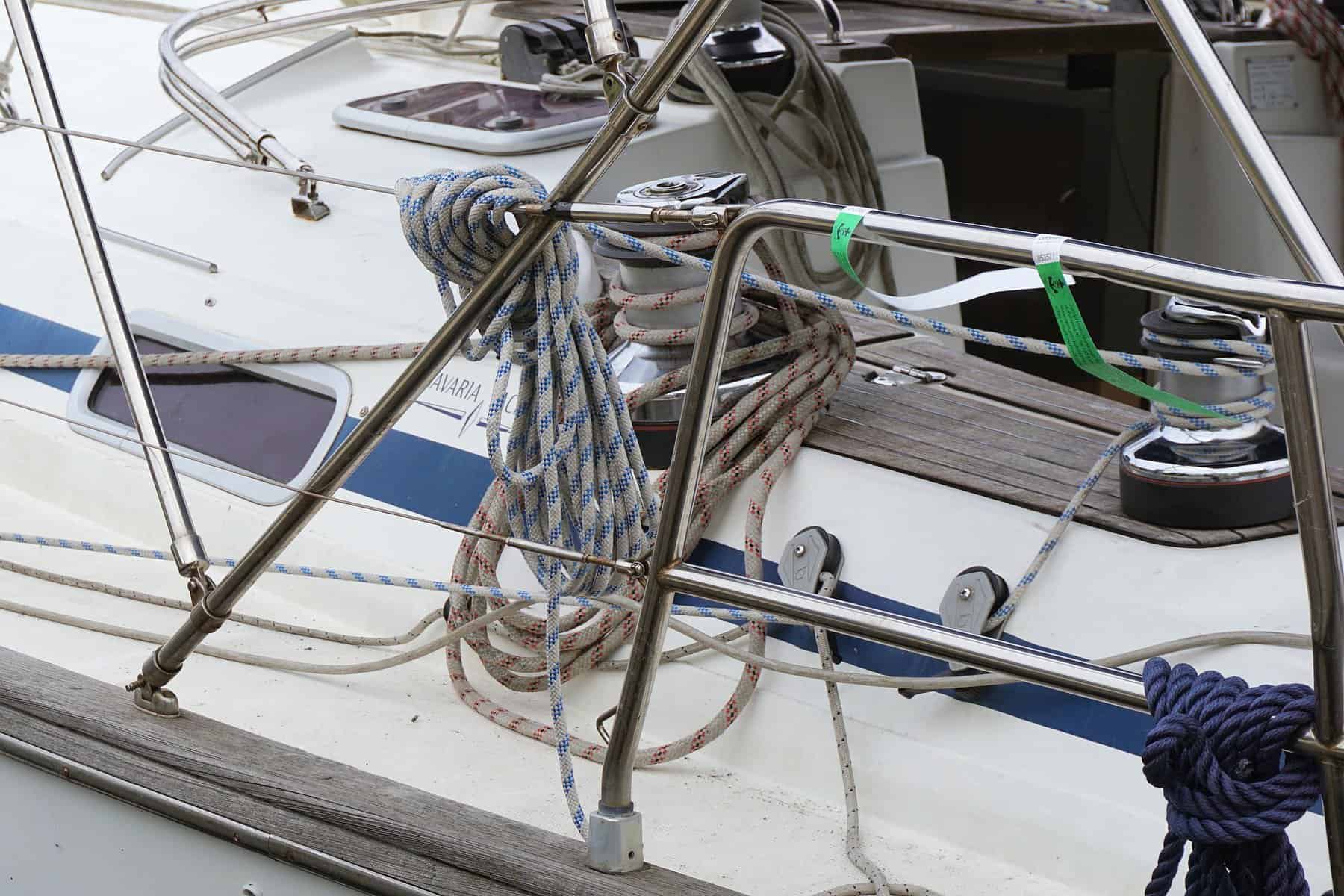
Okay, so maybe the money has made you seriously consider starting out as a yacht deckhand. But do you know what the job entails? There are quite a lot of responsibilities lined up for a yacht deckhand, and these include:
All hands on deck, and that means you, deckhand. The job of cleaning the yacht is all a part of the deckhand duty. You’re going to mop the messes, clean up after rowdy guests, and essentially make sure that everything stays clean and tidy to maintain the luxury feel.
But it’s more than just mopping and tidying. A deckhand also has to polish chrome railings, wipe glass panels to remove smudge marks, clean communal toilets, and maintain public areas after each use. You’re also going to have to clean unseen features of the boat like the inner machines and equipment that hide under the deck.
Basic Repairs
A broken air conditioner in stateroom number two? That’s your business. Minor and basic repairs of features around the boat are the deckhand’s responsibility. So expect to change a light bulb or two while you’re on board.
You should also have some basic knowledge on things like painting, caulking, filling, and varnishing, which you might have to do depending on the conditions on the yacht. Of course, for bigger maintenance problems like major repairs of equipment and machines, the engineers will be mostly responsible.
Safety Protocol Implementation
There’s a lot that could go wrong on a yacht. Slip and fall accidents, choking, and drowning -- these are just some of the dangers that await yacht passengers. That’s why all deckhands have to have some basic knowledge on life support and first aid.
But to prevent the need to use these skills all together, the deckhand makes sure that all passengers are observing proper safety protocol. That means reminding them when to wear a life jacket, and politely informing them of any potentially dangerous activity they might be doing on board.
Water Sports Assistance
Whether it’s water skiing or jet skiing, the deckhand is there to help. They’re the guys who handle the lines, deploy the water toys, and assist the guests for safe fun and enjoyment. They’re basically the all-around assistants on the yacht, doing what they can to maintain safety and keep the guests as comfortable as possible.
Not all yachts will have water toys though, but those that have them will require more than a few deckhands. On larger super yachts , lead deckhands are responsible for designating deckhands to different parts of the boat so that everyone gets the assistance they need.
Deckhands are the guys who see the deck most often. They’re the first to know when something is damaged, the first to know when guests need something, and the first to know when danger might be up ahead. So they should also be responsible for communicating with the rest of the crew.
These guys are in constant communication with the captain, engineers, stewards and stewardesses to maintain smooth sailing. They relay important information to the higher ups in order to curb potential accidents and to make the guests requests known in case they were approached for that specific purpose.
What Training is Required?
You can’t be a deckhand just like that. There are requirements and certificates you have to comply with to become fit for service. These training programs provide the necessary knowledge and skills to improve your performance and equip you for the unique challenges of the yacht deckhand job.
Certification of Medical Fitness
This is a compulsory requirement for all individuals hoping to apply as a deckhand. The certification of medical fitness confirms that you have no serious medical conditions that could affect your work on board. Remember, a huge chunk of your job is to keep everyone safe. If you have any conditions that require unique care, then you might not be able to fulfill your responsibilities.
Standards of Training, Certification and Watchkeeping
This is another requirement for all of those applying for a spot on a yacht crew. The STCW provides basic training on fire fighting and prevention, personal safety and social responsibility, security awareness, sea survival, and emergency first aid. The goal of the training is to make sure the entire crew is prepared to face potential hazards as they arise.
Deckhand Training Course
While this one’s not required, it does help improve your chances of getting a job. The deckhand training course provides you all the basics of the job, teaching you the ins and outs of the work your occupation entails. You can also add on other courses like a personal watercraft certificate that lets you safely operate and deploy things like jetskis.
What Type of Person is Best Suited to the Job?
Not everyone is a fit for the deckhand occupation. That said, if you think you have most of the following qualities, you might find the work to be a good choice if you’re considering starting a career on the sea:
- Works well in a fast-paced environment
- Handy with tools
- Good problem solver
- Patient and courteous
- Takes well to instructions and commands
- Team player
- Willingness to learn
- Works well under pressure
- Can work with minimal supervision
- Good time management skills
- Physically fit
- Takes criticism and correction well
A deckhand is one of the lowest ranking jobs on the deck, so expect to get quite a lot of correction from your superiors. But aside from that, your guests might also find reason to criticize and correct your work. So it helps to be patient and thick-skinned if you plan to work in this demanding industry.
All in a Day’s Work
How much does a deckhand make on a yacht? Not a lot if we’re talking salaries, but those tips might make up for the meager pay. And when you consider the luxury facilities and the potential of rubbing elbows with the rich and the famous, it’s easy to see that the life of a yacht deckhand is anything but boring.
Related Posts
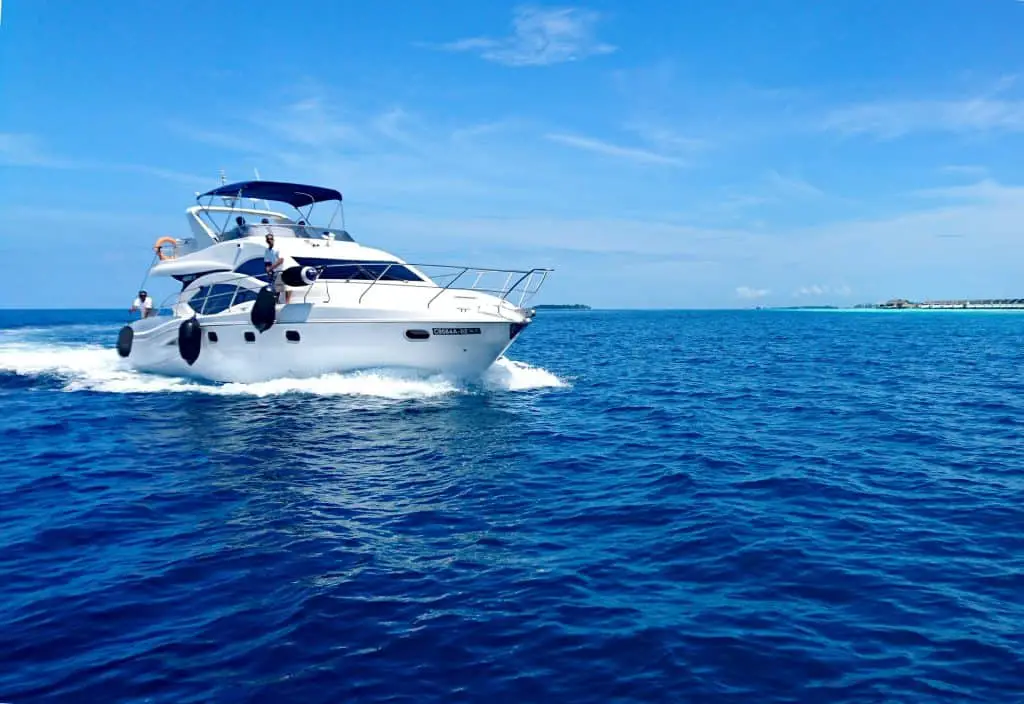
Can I Pilot My Own Yacht? Qualifications & Licenses

Do Yachts Have Air Conditioning? (Yacht AC Types)

Why are Superyachts So Expensive? [The Costs Explained]

How to Sail from California to Hawaii (San Fran, LA, +)
- Online Courses
- Useful Info
How to Become a Deckhand on a Superyacht: A Step-by-Step Guide
Home Blog How to Become a Deckhand on a Superyacht: A Step-by-Step Guide
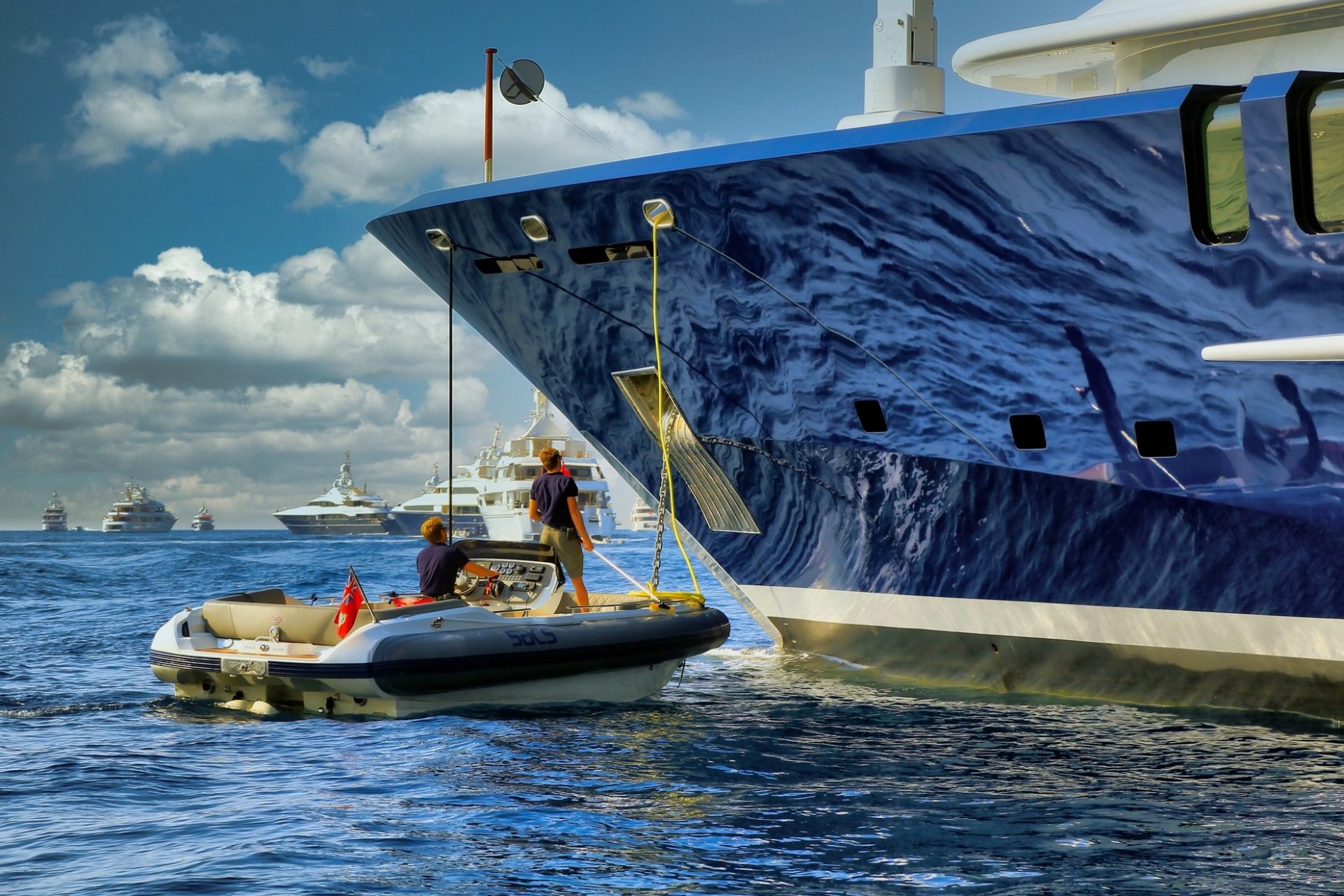
Embarking on a career as a deckhand on a superyacht offers an unparalleled blend of adventure, luxury, and the opportunity to travel the world. Whether you’re drawn to the pristine beauty of the open sea or the meticulous care of magnificent vessels, becoming a deckhand could be your gateway to an extraordinary lifestyle. This guide provides a comprehensive overview of how to start your journey, covering everything from necessary qualifications to finding work.
What Is a Deckhand?
A deckhand is an essential crew member on Superyachts, responsible for maintaining the vessel’s exterior, assisting with docking, and ensuring safety equipment is up to par. Beyond upkeep, deckhands play a significant role in guest experiences, facilitating water sports activities and managing tender operations to transport guests. With a focus on detail, physical stamina, and a commitment to service, deckhands are key to both the operational efficiency and the luxury experience on board. This position offers a unique blend of adventure and professional growth for those passionate about the industry.There is a clear pathway leading deckhands from their starting point as a junior deckhand to becoming a captain which we will cover later on.

What Does a Typical Day Usually Look Like For a Deckhand?
A typical day for a deckhand varies from boat to boat and depends if there are guests on or off.With guests on , the deck crew usually start early in the morning going around the yacht to make sure all the furniture is uncovered, decks are clean , paint is shiny and everything is looking presentable for when the guests come out.The deck crew will set up the watersports equipment and launch tenders into the water to have them ready on standby for guest operations. Throughout the day the deck crew will be on standby waiting for guest requests taking them in tenders ashore ,exploring or to carry out watersport activities which could include jetskis, sea bobs, kayaks, surfing , wakeboarding, flight boards , snorkelling, diving and much much more.
What Qualifications Do I Need To Become a Deckhand On a Superyacht?
- STCW Basic Safety Training : The cornerstone certification for maritime professionals, covering safety protocols, firefighting, and sea survival techniques.( Mandatory )
- ENG1 Medical Certificate : A health certification confirming you’re fit for sea duty.( Mandatory )
- Powerboat Level 2 / IYT Small Powerboat & RIB Master : Often required for handling the yacht’s tenders and smaller boats. ( Some yachts mave have this as a mandatory requirement )
- Superyacht Deckhand Training : ( Not mandatory but highly recommended )
- LROCP (Long Range Operator Certificate of Proficiency) VHF/HF Marine Radio Operator’s Certificate Course ( not mandatory but recommended )
Where Can I Complete The Qualifications?
STCW 95 – https://www.superyacht-crew-academy.com/
ENG1 Medical Certificate: – https://www.gov.uk/government/publications/mca-approved-doctors-overseas/mca-approved-doctors-overseas
Powerboat Level 2 / IYT Small Powerboat & RIB Master: https://www.superyacht-crew-academy.com/courses/tender-driving-iyt-rib/
Superyacht Deckhand Training: https://www.superyacht-crew-academy.com/courses/superyacht-deckhand-course/
For AMSA Medical: https://www.sonichealthplus.com.au/services/legislative-medicals/maritime
LROCP (Long Range Operator Certificate of Proficiency) VHF/HF Marine Radio Operator’s Certificate Course : https://www.superyacht-crew-academy.com/courses/vhf-marine-radio-operators-certificate/
What Transferable Land Skills Are Good To Have For a Superyacht Deckhand?
Carpentry: Carpentry skills are indispensable for maintenance and custom fittings, ensuring the yacht’s aesthetic and structural integrity. Your ability to craft and repair woodwork is crucial for preserving the luxury and bespoke nature of superyachts.
Videography & Photography: In an era where digital presence is key, your videography and photography skills can be used to document voyages and market the yacht’s charter services, enhancing its appeal to potential clients.
Diving: Diving skills open up underwater maintenance and exploration services, adding an exclusive experience for guests and ensuring the safety and cleanliness of the yacht’s hull.
Fishing: Knowledge of fishing can enhance the guest experience, offering personalised excursions and the thrill of catching fresh seafood for onboard meals.
Swimming & Surf Instructing: Proficiency in swimming and the ability to instruct guests in water sports like surfing enrich the array of activities offered, ensuring guests have a memorable and active stay.
Fitness Instructor: As a fitness instructor, you can lead personalised workout sessions, helping guests maintain their fitness routines while enjoying the luxury of the yacht.
Driving Boats: Skill in driving tenders and other small boats is essential for transporting guests, leading excursions, and ensuring the smooth operation of all water-based activities.
Painting/Varnishing: Expertise in painting and varnishing is crucial for the upkeep of the yacht’s appearance, protecting it from the elements and maintaining its value.
Watersports Instructor
Watersports instruction encompasses teaching and guiding guests in activities such as jet skiing, wakeboarding, kiteboarding and paddleboarding. For superyacht crew, being skilled in watersports instruction not only enhances the guest experience by offering fun and engaging activities but also ensures safety and confidence in the water

Can Deckhands Have Tattoos?
The yachting industry values professionalism and a certain standard of appearance. While visible tattoos may not be a deal-breaker on all yachts, they can limit your job prospects. It’s advisable to be upfront about any visible tattoos when applying for positions.
Each yacht has its own unique culture and policies, particularly when it comes to tattoos. While some yachts are more lenient, embracing both small and large visible tattoos, others may enforce strict policies against them. It’s important to be transparent about any visible tattoos you have. However, there’s no need to disclose tattoos that are not visible.
Is It Hard Being a Deckhand?
It’s not all watersports and driving multimillion-dollar tenders , there are long days of work , loads of physically demanding work and a lot of job/yacht-specific skills to learn which only comes with experience working on Superyachts.There will be a lot of working outdoors in hot weather, a lot of yacht maintenance & cleaning.There will be a lot of hard work however there are so many rewarding experiences and memories that outway by far all the hard work.Make sure you have a can-do, positive attitude and don’t be afraid to help other departments on the yacht if you have spare time , it goes a long way.
How Much Do Junior Deckhands Earn?
Salaries for deckhands can vary widely based on the yacht’s size, the vessel’s itinerary, and the deckhand’s experience.
Junior Deckhands : Starting Salary: Junior deckhands, who are just beginning their careers in the yachting industry, can expect to earn between $2,500 and $3,500 USD per month. These entry-level positions provide the foundational experience necessary for a successful career at sea.
Experienced Deckhands : Salary Range: As deckhands gain experience and demonstrate their skills, their earning potential increases. Experienced deckhands can expect to earn between $3,000 and $4,500 USD per month, depending on the yacht’s size, the complexity of the itinerary, and the specific duties they are tasked with.
Lead Deckhands : Salary Insights: Lead deckhands, who have additional responsibilities and may oversee junior deckhands, can see their salaries increase to between $3,500 and $5,000 USD per month. Their role is more demanding, requiring not only a thorough understanding of deck operations but also leadership skills.
Bosuns: Earning Potential: Bosuns, who are responsible for supervising the deck crew and maintaining the exterior of the yacht, can earn between $4,000 and $6,000 USD per month. Their salary reflects their critical role in ensuring the vessel is in pristine condition and their ability to manage the deck team effectively.
Officers: Salary Range: Officers on yachts have significant responsibilities, including navigation and safety management. Their salaries can range from $5,000 to over $8,000 USD per month, depending on their rank, the size of the yacht, and their specific duties. Chief officers, who are second-in-command, can expect salaries at the higher end of this range.
Captains: Top Earnings: Captains, who have the ultimate responsibility for the yacht, its crew, and its passengers, can earn from $7,000 USD to well over $20,000 USD per month. The captain’s salary is influenced by the size of the yacht, the complexity of the voyages undertaken, and their level of experience.
Factors Influencing Salaries
Yacht Size: Larger yachts typically offer higher salaries due to the increased workload and expertise required. Experience and Qualifications: Crew members with more experience and specialized qualifications can command higher salaries. Charter vs. Private: Crew on charter yachts might earn more due to tips from guests, whereas private yacht crew salaries are often more stable but without the added bonus of tips.
What Does The Career Progression Look Like To Go From Deckhand To An Officer ( MCA Route ) ?

How Do I Find Superyacht Job Position Listings?
The best place to look is on crew agency websites or job search platforms like Yotspot which has a large number of job listings you can look through, create a profile and update your account with your CV and all your certificates then you will be able to apply for jobs.
Below is a list of almost all the crew agencies from around the world that you can sign up with to increase your chances of landing a job. It is a lot of work creating profiles and uploading documents, however, it could increase your chances of being connected with the right job at the right time.
DOWNLOAD THE CREW AGENCY LIST

Are There Facebook Groups That Post Job Listings?
Yes, there are multiple facebook groups that post job listings all the time , it’s great to sign up with as many as you can to increase your chances of finding a job. Please note: make sure to clean up your Facebook profile before signing up to the groups as future employers may see your profile and you want to make a good first impression.
Some groups include:
Antibes Yacht crew
Palma Yacht
Australian Pacific Yacht crew

How To Become a Deckhand In Australia?
The process involves specific training and certifications, especially due to the requirements set by the Australian Maritime Safety Authority (AMSA). Here’s a step-by-step guide to help you navigate your way into this career:
1. Understand the Training Requirements
The foundational step to becoming a deckhand in Australia is to complete the necessary safety training. While the training is broadly similar across different countries, there are specific requirements for those intending to work on commercial vessels within Australia:
- STCW Basic Safety Training: This is a mandatory course for anyone working at sea, covering essential safety procedures, firefighting, first aid, and personal survival techniques. In Australia, the AMSA requires crew members working on commercial vessels to have an AMSA-compliant Certificate of Safety Training (COST).
- General Purpose Hand: The Australian General Purpose Hand Near Coastal Certificate I in Marine Operations qualification will enable you to work as a deckhand on Australian Registered commercial or private vessels
- AMSA Medical: If you wish to work on commercial vessels in Australia you will need an AMSA medical to ensure you are fit to work at sea you can find centres to complete the medical here – https://www.sonichealthplus.com.au/services/legislative-medicals/maritime
2. Choose the Right Certification for Your Career Path
Depending on where you intend to work, you’ll need to choose the appropriate certification:
- For Private and Foreign-Flagged Vessels in Australia: If your goal is to work on private or foreign-flagged vessels within Australia, you can use an MCA-approved STCW 95 certificate issued by the Marshall Islands, which SCA (Superyacht Crew Academy) offers. This certification allows you to work on private and foreign-flagged vessels in Australia, providing a pathway to gain experience before potentially heading overseas.
- For Commercial Vessels in Australia: If you aim to work exclusively on commercial vessels in Australia, such as charter boats or tour boats, you should obtain an AMSA Certificate of Safety Training (COST). This certification is specifically designed to meet the requirements for crew members on commercial vessels operating within Australian waters.
3. Gain Experience
- Start Locally: Gaining experience in Australia before heading overseas is highly recommended. Working locally allows you to understand the industry better, build your resume, and develop the necessary skills in a familiar environment.
- Consider Temp Work: Temporary positions can provide valuable experience and insight into the life of a deckhand. These roles can also offer networking opportunities, which are crucial in the yachting industry.
4. Plan Your Career Path
- Decide on Your Long-Term Goals: Whether you wish to explore international waters or prefer to stay within Australia, your career goals will influence the type of experience and certifications you should pursue.
- Continuous Learning: The yachting industry is constantly evolving, so staying updated with the latest safety protocols, regulations, and skills is essential for your career development.
Once you have completed your training sign up to as many Australian agencies as possible to increase your chances of landing a job , you can find a list of the Australian agencies below.
MARINE JOBS AYC MYS SUPERYACHT CREW CHAPMAN YACHTING SUPERYACHT CREW INTERNATIONAL CREW PACIFIC CHAMPION CREWING
What Are The Next Steps To Becoming a Deckhand?
Now you are ready to travel and become a deckhand on superyachts it is time to get certified, get all your qualifications mentioned earlier below:
- LROCP (Long Range Operator Certificate of Proficiency) VHF/HF Marine Radio Operator’s Certificate Course
Figure out where you want to look for work and head there to be based in the yacht hub to be around for interviews and networking.
Create your CV/resume and sign up to crew agencies online , creating your profiles and applying for jobs.
Attend job interviews and hopefully land your first deckhand role ( make sure to practice interview questions beforehand )
We interviewed a Superyacht captain with some really helpful advice on what to do and what not to do in interviews you can check it out below
EXPERT JOB INTERVIEW ADVICE FROM A SUPERYACHT CAPTAIN
Becoming a deckhand on a superyacht is an exciting path that offers more than just a job – it’s a lifestyle. With the right qualifications, a proactive approach to job hunting, and a commitment to continuous learning and improvement, you can embark on a rewarding Superyacht career. The world of superyachting awaits those with the courage to pursue their dreams of traveling , making good memories and friends.
Ready to Travel The World As a Superyacht Deckhand?
We have the necessary courses you need to start as an entry-level deckhand, head over to the link below for some more course information.
STCW 95+10 – https://www.superyacht-crew-academy.com/courses/stcw-95-10/
Superyacht Deckhand Course – https://www.superyacht-crew-academy.com/courses/superyacht-deckhand-course/
Superyacht Deckhand Package – https://www.superyacht-crew-academy.com/courses/superyacht-deckhand-package/
GPH ( General Purpose Hand ) – https://www.sydneymaritimeinstitute.com/deckhand-gphcourse
Best of luck with your career as a Superyacht Deckhand!
Latest News
Stay up to date.
Sign up to stay informed on our courses, dates and industry information, work opportunities and more.

Superyacht Crew Academy Provides training and certification for people who wish to work on Superyachts anywhere in the world and within the Australian Maritime Industry. Legal Name: Club Sail Pty. Ltd. Trading as: Superyacht Crew Academy Registered Training Organisation no. 91462
Unit 25a/5 Ponderosa Parade, Warriewood, NSW 2102, Australia.
+61 2 9979 9669
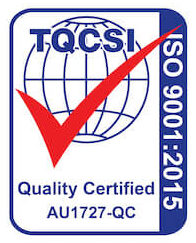)

Yacht Crew Salaries: Complete Guide to What Yacht Crew Earn
It’s no secret that the impressive yacht crew salaries attract most people into the exclusive yachting world.
Junior deckhands or stewardesses can earn starting salaries of $3000 per month. With a few years of experience and some courses to back you up, this amount moves up towards $4000-$4500 per month!
In order to compile this superyacht crew salary guideline, I have taken 10 of the top yachting platforms and used all of their data, combined with my personal experience, to reach an average salary expectation for each position.
Table of Contents
How Much do you Make Working on a Yacht?

Yacht Captain Salary
- 20m-30m: $4000-$7500
- 30m-40m: $5500-$9500
- 40m-50m: $8000-$15000
- 50m-70m: $13000-$19000
- 70m+: $16500+
Requirements of a Yacht Captain
- Years of experience needed: 3-5 years of experience as Chief Officer/Mate and more than 5 years of experience as a Captain for larger yachts
- Minimum level of Qualification: 200ton licence which allows you to drive vessels below 200tons
The Captain has the highest level of responsibility onboard the yacht and hence they earn the most out of all the yacht crew salaries.
Captains are accountable for the overall safety of the yacht, crew members and guests.
They also handle daily operations of the yacht, guests, and owner liaison. They deal with management companies, port control, budgets, human resources, and many more tasks and logistics that make the job demanding and stressful.
On top of this, Captains are required to hold high levels of certifications depending on the size of the yacht they are driving.
Yacht Captain salaries can sky rocket with higher levels of qualifications.
If you are looking to become a Yacht Captain one day I recommend looking into the courses required so you can get started with licenses and sea time. It takes time to get there, but when you do it will be worth it.

Chief Officer Yacht Salary
- 30m-40m: $4000-$6000
- 40m-50m: $4500-$7500
- 50m-70m: $5500-$9000
- 70m+: $8000+
Requirements of a Chief Officer
- Years of experience needed: 3-5 Years
- Minimum level of qualification: Officer of the Watch
The Chief Officer is second in command to the Captain and is responsible for carrying out the Captain’s standing orders.
On smaller yachts, the Chief Officer is referred to as the Mate.
The Chief Officer is responsible for carrying out the safety duties onboard and assisting in the bridge with paperwork and navigational planning.
The Chief Officer is also responsible for leading and managing their deck team, ensuring crew are following their duties as well as managing the water sports and guest activities.
The salary of a Chief Officer depends heavily on the license held.

Bosun Yacht Salary
- Years of experience needed: 2-3 years
- Minimum level of qualification: Yacht Master Offshore
- A yacht Bosun salary can vary between $4000 and $6000.
Responsibilities of a Bosun
The Bosun is essentially the Lead Deckhand onboard. A lead deckhand salary on a larger vessel will be similar to that of a bosun salary on a smaller vessel.
This is an opportunity to step up from being a deckhand and gain some experience in a leadership role. This position is in place for larger yachts so that when the Officer is busy with bridge duties, someone is in charge on deck.

Yacht Deckhand Salary
Years of experience needed: 0
- Minimum level of qualification: None needed, however Power Boat Level 2 and Yacht Master offshore will put you at a great advantage
- Entry-level yacht crew salaries start at $3000 and can go as high as $4000/$4500.
Responsibilities of a Deckhand
A Deckhand is an entry-level role on a yacht.
You need to spend a few years (or less) as a Deckhand in order to learn and gain experience so that you can step up in the ranks and obtain your licenses.
This role will be very hands-on in maintaining the exterior of the yacht. Duties will include cleaning, polishing, varnishing, sanding, caulking, and any other maintenance work required.
Chief Steward / Chief Stewardess Salary
- 30m-40m :$4500-$5500
- 40m-50m :$5000-$7000
- 50m-70m- $5500-$8000
- 70m+: $7500+
Responsibilities of a Chief Stewardess/Steward
- Years of experience needed: 3-5 years
- Minimum level of qualification: Depending on the size of the vessel you may need courses such as Food Hygiene and Safety, Silver Service, WSET, or a Purser course
The Chief Stewardess or Steward is responsible for all the interior operations of the yacht .
They are responsible for managing the interior team, and ensuring the interior of the yacht is maintained to the highest standards. Besides cleaning and laundry schedules , this also includes provisioning for crew and guests, budgeting, accounting, and training of junior crew.

Steward or Stewardess Yacht Salary
- Minimum level of qualification: Depending on the size of the vessel you may need courses such as Food Hygiene and Safety and Silver Service
- Salaries start at $3000 and go up to $6000
Responsibilities of a Steward or Stewardess
A Stewardess/Steward is an entry-level position working within the interior of the yacht.
There are rankings within the interior (2nd, 3rd, 4th Steward/Stewardesses). As you spend more time in the industry, you will be promoted to higher ranks, and with that will come a better salary and more responsibility.
This role covers a range of tasks, including but not limited to housekeeping, laundry, bartending, table scaping, floral arrangements, serving, and hosting guests.

Engineer Yacht Salary
- 20m-30m: $4000-$5000
- 30m-40m: $4500-$6500
- 40m-50m: $6000-$8000
- 50m-70m: $7500-$11000
- 70m+: $9000+
Requirements of an Engineer
- Years of experience needed: 2-4 years in an engineering role onboard as Deck/Engineer or relevant land-based experience
- Minimum level of qualification: AEC
The Engineer onboard is responsible for all mechanical functioning and maintenance of the vessel. This is a very technical role that can pay well as you gain experience and obtain your licensing.
Yacht Chef Salary
- 20m-30m: $4000 – $5000
- 40m-50m: $5500 – $75000
- 50m-70m: $6500-$9500
Requirements of a Yacht Chef
- Years of experience needed: 3-5 years depending on previous experience
- Minimum level of qualification: Food Hygiene and Safety Level 2
The Chef is responsible for feeding the crew 2 to 3 healthy and sustainable meals a day. They are of course required to prepare meals for guests when onboard to the highest of standards.
In their day-to-day tasks, they will be responsible for their own provisioning of the galley, maintaining stocks, cleanliness, and hygiene of the galley.
The salary of the Yacht Chef varies depending on qualifications and experience.

Yacht Crew Salaries for Private vs Charter Yachts
There are two types of super yachts that require crew: Private and Charter yachts. The salaries for yacht crew differ slightly between the two.
Private Yacht
A private boat is owned by a single person or family who uses the yacht for their own purposes. They don’t charter it out and you can expect to have the same guests onboard for the duration of your contract.
The benefit of these programs is that you get to know your guests well so you may find it easier to manage their wants and needs.
You may also benefit from traveling to off-the-beaten-track locations as I have!
For yacht crew working on these private boats, you will usually not receive charter tips.
Charter Yacht
A charter boat is one that gets chartered out by guests. This operates as a business and also means you will have different guests for every trip.
If you work on a charter boat you can expect to receive charter tips at the end of each charter. These are usually 10%-20% of the charter fee!
Considering these tips can be anywhere from $2000-$5000 per week depending on the size of the yacht, charter boats offer great earning potential and can skyrocket your salary as a yachtie.

Hi, my name is Lisa, a Chief Stewardess in the yachting industry with 10 years of experience, as well as 8 years of hospitality experience prior to that. Being in the yachting industry has been a whirlwind of adventure, growth, challenges and some of the best experiences of my life, and I am excited to share my knowledge and experiences with all of you.
How to Write the Perfect Yacht CV [With Template]
A day in the life of a yacht stewardess.
- Brokerage New Construction How to Buy How to Sell
- Yacht Fleet Yacht Catalog Charter Marketing Destination Guides
- Financial Services Payroll & Accounting Payroll Service Process Logistical Support Admin Services Crew Admin
- Job Descriptions Crew FAQ
- About Sitemap
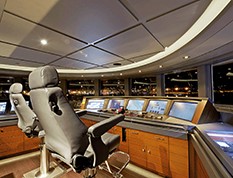
- Yacht Department Directory, About Deck Department, Deck Department
- Deck Department
About the Deck Department
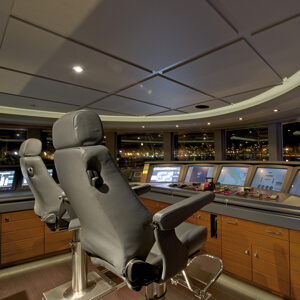
The deck department on board a superyacht is a dynamic, multifunctional department that involves duties ranging from skippering an Atlantic crossing to taking guests on jet-ski tours of some of the most beautiful hidden bays in the world. The work is extremely varied and an assortment of skills are necessary to be successful.
This department is responsible for the following aspects of the yacht operation:
- owner communication
- financial administration
- bridge operations
- exterior repair and maintenance
- tender and water sports operations
- safety procedures
The development path for an individual wishing to pursue a career on deck is very specific and requires achieving certain milestones. As an entry-level deckhand, focus should be on learning as much as possible from senior deck crew. Daily duties will include cleaning, polishing and exterior maintenance. As ordinary as these jobs may seem some days, the importance of learning good techniques and basic skills is crucial to continued progression in the superyacht industry. At the beginning of your career it is important to document all the skills you learn as well as your sea time.
As you graduate from rookie status after one year onboard yachts, the next step will be to develop boat handling skills and pursue your first deck license which might be a 100T USCG or MCA Y200. You will also continue to learn more advanced maintenance and repair techniques. This is the stage in most deck careers where the decision is made to pursue yachting as a long-term profession, investing the time and money necessary to progress.
Continuing to build your career as a seafarer with three or more years of experience will likely involve obtaining more advanced licenses. The educational requirements are demanding and expensive – they are an investment in your future. However, it is important to balance time at school with continued experience on board yachts, refining your skills and building sea time. During this stage of your career, you will become more involved in bridge operations and navigation.
The role of a captain aboard a luxury yacht is one of the most fulfilling jobs in the world, and with this opportunity comes great responsibility. The captain is ultimately responsible for the safety, well-being and experience of every crew and guest on board. In addition to managing the deck team, they also possess primary responsibility for financial administration and owner communication. Captains are professional seaman, expert problem solvers and are able to manage every situation with poise and exemplary leadership.
Career Path
Senior master, junior captain, first officer / chief mate, officer of the watch, junior deckhand.

Yacht Crew Positions and Salaries
The organisational structure onboard a superyacht follows a strong hierarchy based upon a military model. Exact job duties and lines of authority are set and strictly adhered to. This hierarchy is followed on the vast majority of yachts; however, responsibilities of the crew on smaller yachts are often merged.
There are four departments on yachts with clear organisational structure:
- Deck (including Bridge) – Safety, passage delivery, maintenance of the yacht's exterior, guest outdoor activities
- Engineering – Safety and smooth operational running of the yacht
- Interior – Housekeeping, guest wellbeing, activities, accounting
- Galley – Food preparation, stock control, hygiene, galley maintenance
The top of the hierarchy on each yacht is the Captain , who reports to the yacht owner either directly, or through a representative or a yacht management company.
Salaries vary and depend on the yacht size, use, type and location, as well as the experience and qualification of the crew member. We included typical salaries of crew based on the data available from reputable industry sources, as well as our research of over 60,000 crew registered with us.
Deck Positions
The primary duty of the Captain is the overall safe manning and operation of the yacht. Yacht Captain is responsible for the vessel, yacht crew, owner and guests, including personnel management, shipyard/project management, legal and regulatory compliance, accounting, achieving owners' objectives, and answers to the owner regarding all decisions.
| Captain | €4,000 - €15,000 |
First Mate / Chief Officer
The First Mate or Chief Officer is the right hand of the Captain. Takes command of the yacht from Captain when required. Shares Captain's responsibilities as required.
| Chief Officer | €3,000 - €13,500 |
| 2nd Officer | €3,000 - €8,000 |
| 3rd Officer | €2,500 - €6,000 |
| Security Officer | €3,000 - €5,000 |
Bosun / Lead Deckhand
Bosuns are usually experienced Deckhands with additional responsibilities. They are in charge of Deckhands onboard the yacht and often spend a lot of time with guests during outdoor activities. The Bosun is normally the main tender driver.
| Mate | €2,500 - €6,000 |
| Bosun | €2,500 - €5,500 |
| Lead Deckhand | €2,500 - €5,000 |
Responsible for the maintenance of the exterior of the yacht and keeping it in pristine condition at all times. Deckhands also assist in maintaining, cleaning and operating yacht's tenders.
| Junior Deckhand | €2,000 - €3,000 |
| Carpenter | €3,000 - €4,000 |
Engineering Positions
Chief engineer.
Responsible for the Engineering Department and for all technical aspects of the boat and its equipment. The Chief Engineer's duties include overseeing all mechanical and electrical operations, ensuring all planned maintenance takes place and liaising with subcontractors.
| Chief Engineer | €5,000 - €15,000 |
Second / Third Engineer
The Second and Third Engineers report directly to the Chief Engineer. They assist in maintaining all mechanical and electrical operations of the yacht.
| 2nd Engineer | €3,000 - €10,000 |
| 3rd Engineer | €2,500 - €6,500 |
| Sole Engineer | €3,500 - €12,000 |
| Motorman | €2,500 - €4,000 |
ETO / AV/IT Officer
Electro-Technical Officer (ETO) and AV/IT Officer are in charge of daily maintenance of all electronic, computer, audio/visual and communications equipment and their efficient operation. This includes the radio, radar, telephones, satellite communications, navigation systems, computers, Internet connection, interior equipment (TVs, sound systems), etc.
| ETO | €4,000 - €8,000 |
| AV/IT Officer | €4,000 - €7,000 |
Electrician
The Electrician is responsible for maintenance of all electrical circuits onboard the vessel, circuit breakers, switches, lighting, batteries, etc.
| Electrician | €4,000 - €6,500 |
This is an administrative position on large yachts. The Purser is responsible for all operations in the interior department, including inventory, purchasing, provisioning, accounting, organising guest activities, and assisting the Captain with the yachts paperwork.
| Purser | €5,000 - €9,000 |
Chief Steward(ess)
Duties are similar to those of other Steward(ess)es onboard the boat, but on a more senior level, including managing the interior department and training. Small yachts with less crew do not have a Purser. The Chief Steward(ess) is in charge of all the responsibilities normally carried out by the Purser on large yachts.
| Chief Steward(ess) | €4,500 - €8,500 |
| Interior Manager | €4,000 - €8,000 |
| Head of Servicer | €4,000 - €7,000 |
| Head Housekeeper | €3,000 - €5,500 |
| Spa Manager | €3,500 - €5,500 |
Steward(ess)
Steward's or Stewardess's main responsibility is to maintain the interior of the yacht and provide the highest standard of care to the owner and guests. They serve food and drinks, prepare guest activities, pack and unpack luggage and are on call for anything that the guests want anytime day or night. On some yachts, they help the deck crew moor the yacht.
| 2nd Steward(ess) | €3,000 - €6,500 |
| 3rd Steward(ess) | €2,500 - €4,000 |
| Spa Steward(ess) | €3,000 - €4,000 |
| Service Steward(ess) | €2,500 - €5,000 |
| Housekeeping Steward(ess) | €2,500 - €4,000 |
| Laundry Steward(ess) | €2,500 - €4,000 |
| Sole Steward(ess) | €3,000 - €6,000 |
| Junior Steward(ess) | €2,000 - €3,500 |
| Butler | €3,500 - €6,000 |
| Stew/Deck | €2,500 - €4,000 |
The Head/Executive Chef onboard a luxury superyacht is a culinary trained professional responsible for the overall management of the galley department on larger yachts, including guest and crew meals, provisioning, food safety, maintaining strict hygiene standards and financial/budgetary administration.
| Head Chef | €6,000 - €10,000 |
Assists the Head Chef in all aspects of galley duties. The Sous Chef may be required to independently provide crew meals or guest meals at the direction of the Head Chef.
| Sous Chef | €3,500 - €8,000 |

Crew Chef / Cook
Large yachts employ a separate crew and guest chef. The Crew chef provides meals for the crew.
| Crew Chef / Cook | €3,000 - €5,000 |
| Sole Chef | €3,500 - €9,000 |
| Stew / Cook | €2,000 - €4,500 |
Other Positions
Many yachts, especially the large ones, have several additional positions. These are often combined with primary roles, e.g. Stewardess / Masseuse or Deckhand / Dive Instructor . The most common are:
| Beautician | €3,000 - €4,000 |
| Hairdresser | €3,000 - €4,000 |
| Massage Therapist | €2,000 - €4,500 |
| Nurse | €3,000 - €4,500 |
| Dive Instructor | €3,000 - €6,000 |
Career Advice:
Email address:
Remember me Forgotten password?
Password Reset
Enter your email address and we will email you a password reset link.
Email address:
Essential Guides
Ocean Mapping
New to Yachting
Yacht Deckhand jobs
Your new adventure awaits.

Explore more yacht roles
Other essential guides.

Mandatory certificates

What you need to know about B1/B2 visa

Download yacht crew CV templates

How to write a memorable yachting CV

How to prepare for a yacht interview?

What are the two main yachting seasons?

Big yacht crew hubs you should know about

Is yachting the right choice for me?

Yacht crew salary guide
A Yacht Deckhand is an entry-level position for those looking to work as a part of the Deck crew team onboard a yacht.
Deckhands are an integral part of the yacht crew in the day-to-day running of the yacht. They are responsible for the daily maintenance of the yacht, involving hands-on tasks to ensure it remains in immaculate condition for all guests at all levels of the yacht.
Depending on the size of the yacht, there may either be only one Deckhand onboard or a team of Deckhands, all working to clean and polish the exterior to maintain the highest of standards. Deckhands are generally supervised by either a Lead Deckhand, Bosun, or a Chief Officer, depending on the size and structure of the yacht.
What does a Deckhand do? | Deckhand Job Description
A Deckhand’s main responsibility is to execute any task their senior gives them, in a timely and precise manner. These tasks predominantly comprise of maintaining the exterior of the yacht.
Daily tasks vary and can include wash-downs, polishing, varnishing, teak cleaning, sanding, painting, and general maintenance. They may also be asked to drive or assist with the yacht’s tenders.
The responsibilities of a Deckhand include:
Regular wash-downs of the yacht
Deck scrubbing
Stainless polishing
Cleaning of deck lockers and bilges
Performing general maintenance duties such as sanding, painting, varnishing, etc.
Assisting with docking operations and anchoring
Assisting guests as required during water sports
Driving state-of-the-art yacht tenders
Soft and hard skills required to be a Deckhand
As an entry-level position, a yacht Deckhand job does not necessarily require any previous yachting experience, but it does require patience and a positive mental attitude.
The competition for Deckhand positions is often very fierce so having any extra skills can really make a difference. Tender driving skills, carpentry, water sports, videography and mechanical knowledge can all help one get ahead of the competition so it's strongly advised to point them out on the CV.
On a personal level, a yacht Deckhand should be sociable and show a fondness for working as part of a team. They are often sporty, athletic people who enjoy being outdoors and are ready for new challenges and adventures.
The skills of a successful yacht Deckhand include:
Ability to take direction
Good work ethic
Physical fitness and strength
Positive attitude
Ability to learn on the job
Good eye for detail
Varnishing skills
Painting skills
Tender driving skills
Knowledge of water sports
Mandatory certificates needed to work on board a yacht
All crew members regardless of position and seniority need to have a valid STCW Basic Safety Training certificate, along with a recognised Seafarers medical certificate, the most popular being the ENG1 which is issued by an MCA (Maritime and Coastguard Agency) professional medic.
Without these two certificates, it is not possible for crew to work on board a yacht and a Recruiter will not be able to assist you in finding work onboard a yacht. For more information about mandatory certificates please visit our Mandatory Certificates Guide .
Are you ready to secure a Deckhand position on board a yacht?
Become a member of YPI CREW and connect with our recruiters so they can guide you through your job search.
Each of our recruiters is specialised in crew placement for a particular department and they will do their best to get you an interview on board a yacht. They will also advise you on how to best present your experience and skills and prepare for a yacht job interview.
YPI CREW TEAM
Ypi crew recruiters in charge of deckhand recruitment.

Fiona Murray
Head of Bosun and Deckhand Department

Alexandra O’Connell
Bosun and Deckhand Recruitment Specialist
Let’s get started. Call us on +33 (0)4 92 90 46 10 or email us.
Our mission, vision and values, mlc 2006 compliance, essential guides, yacht crew positions.
Chief Officer
Second Officer
Third Officer
Chief Engineer
Interior Crew
Head of Service
Head of Housekeeping
Specialist Positions
Spa Manager
Spa Therapist
Personal Trainer & Yoga Instructor
Hairdresser
Mandatory Certificates
B1/b2 visa information, how to write a memorable cv, how to prepare for an interview, yachting seasons, yacht crew salary guide, is yachting the right choice for me, cv templates, ocean mapping, new to yachting.
+33 (0)4 92 90 46 10

All guides , Deckhand
How much do you get paid to be a deckhand on a yacht.
- July 19, 2021
You might have watched the crew on below deck and now you want to know, what is the salary for yacht crew ?
As a Deckhand your salary can range depending, on the size of the Yacht, wether it is private or charter and the Yacht travel plans. You can expect these salaries when you get into a new Junior Deckhand Position.
| 1st Mate | + 100 m | $6,000 – $9,000 US & Europe Based |
| 60-100 m | $3,000 – $6,500 US & Europe Based | |
| Bosun | 60 m | $3,500 – $6,000 US & Europe Based |
| Deckhand | General Guidelines | $3,000 – $5,000 US & Europe Based |
| Junior Deckhand | General Guidelines | $2,500 – $3,500 US & Europe Based |
This will also depend on factors such as if you choose to work on Sailing yachts or motor yachts, moreover you can select large yachts or small yachts, and decide between charter or private yachts. Together we will select your yacht type in the Kick-start Deckhand Package.
You can check a full Salary report here
The yacht salary guidelines above can increase depending on your leave and salary package…..
Once you spend a few years in the industry and get additional training in your department you can progress into a leadership position on board. As a Deckhand on yachts this will l ead to the Bosun or 1st Mate position, the Salary for a 1st mate can range up to 10 000/ USD per month on the largest Yachts including bonuses and tips.
- Chief Officer (Deck) up to 10 000 USD/month with 7-10 years yacht industry experience
- Captain (Deck ) Up to 25 000 USD /month on the largest Yachts with +10 years yacht industry experience
- Chief Engineer (Engine) Up to 15000-20000 USD/ Month on the largest Superyachts owned by billionaires such Steve Jobs yacht Venus and Larry Ellison.
What is the Deckhand Yacht Salary without any experience ?
When you are starting to work as a Junior Deckhand you can expect a salary between 2300-3000€/ month and you will have at least 38 days paid leave per year.
A few things to think about:
- On larger Yachts you will have less free time , but longer and better holiday packages
- Work 3 months / Holiday 1 month
- Work 5 months / Holiday 1 month
- On Charter yachts you can earn a lot of tips but will have a lower salary and not as good holiday package.
- Salaries are not taxed, and you are responsible for your tax in your home country, if any.
How much do you earn in tips on board Superyachts as Deck crew ?
On private yachts you can expect bonuses if you remain on board for several years, such as an annual bonus to keep the crew on board longer and create longevity.
If you choose to work on Charter Yachts, you can instead work hard and long hours, but get awarded with very large tips. Tips for Superyacht crew are as follows:
- Divided equally among Deckhands, Stewardesses and the rest of the crew
- Independent of rank on board
- Usually range between 10-20% off the charter price
- Based on a weekly charter price for the Yacht size
Example of Superyacht tips for a Junior Deckhand
- Superyacht size 5o meter
- Crew On board – 13
- 1 week charter – 30 000€
- After a very good job by the crew they will leave 15% tips
- This equals more than 2000€ Tips per crew member
You could earn an additional 2000€ on a charter yacht per week. If you do 8 weeks of charter in a year, which is normal for a Chart yachts you will earn an additional 15 000€ tips to your Yacht salary.
Remember that this is very hard work and long hours, but so worth it ! To start working as a Superyacht Deckhand the best way is to start with Yachtiecareers.

Yacht Deckhand Premium STCW

Yacht Stewardess Premium STCW

Yacht Stewardess Full STCW
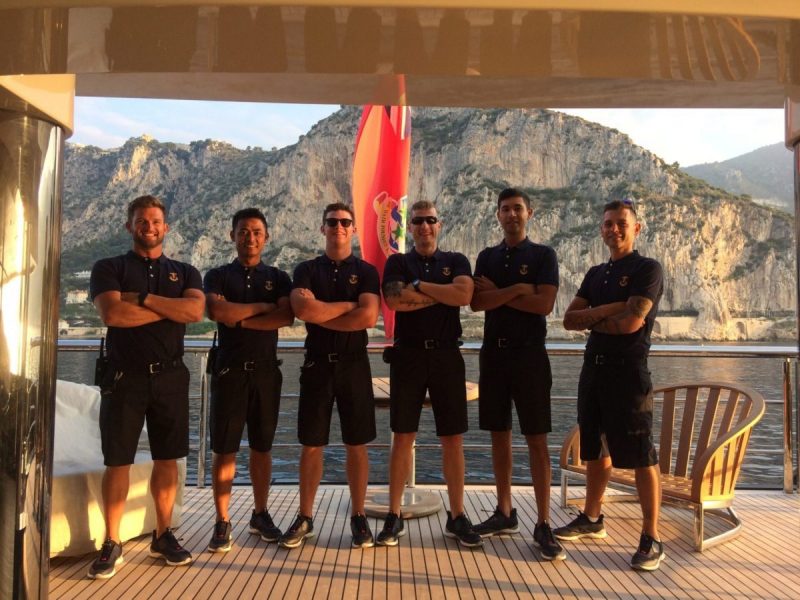
Superyacht Deckhand Full STCW

STCW Training in Holland- A Comprehensive Guide

Top 10 best places to find a Yacht job in the Med 2024?

Yacht Crew Courses for Holland: Food Hygiene Level 2

Yacht Deckhand Training in United States: Upgrade Your Career at Sea
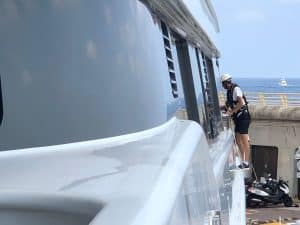
Best Yacht Deckhand Training in Florida: Advance your Sea Career

Find the Best Yacht Deckhand Training In Fort Lauderdale

All You Need to Know About Yacht Stewardess Training in United States
Superyacht crew training europe.

2024 Dates full. Book Final 4 spot for October date with payment plan “paylater50”
Get free yacht cv and yacht job offers

Get Onboard
Superyacht Training

How to Become a Super Yacht Deckhand
A super yacht deckhand Deckhand is the entry-level position for crew who want to work on in the exterior department onboard a super yachts. A Deckhand’s role will be is vast varies depending on the size of the vessel, however, the primary responsibility for a Deckhand is the meticulous cleaning and maintenance of the exterior of the yacht, which must be kept in pristine condition at all times.
On occasion, yacht deckhands may assist with the interior and galley department however this varies on each vessel and its size. His or her responsibilities are carried out under the leadership of the yachts Lead Deckhand, the Bosun, Chief Officer and/or the Captain.
What Does a Deckhand Do?
The deck department can range in size from between 1 and 10 or so deckhands. The duties and responsibilities as a yacht deckhand vary depending on the size of yacht and number of crew on the yacht. With your first position, you can expect your duties to consist of learning the basic duties of a deckhand, including washdowns (cleaning the yacht from top to bottom), cleaning windows, polishing stainless steel and scrubbing the teak decks.
if you decided to work onboard a smaller yacht with a smaller number of deckhands, some of the deck responsibilities for deckhands will increase to more hands-on duties and guest relations such as; tender driving, anchoring, mooring procedures, sanding, varnishing and painting etc. On smaller yachts, you can also expect to be have dual roles and be expected to assist within the galley or interior when on charter. Team work makes the dream work.
Being a deckhand requires that you are comfortable talking to and dealing with guests, as you will be assisting guests with water sport, tender rides to shore and yacht toys such as jet skis, paddle boards, kayaks and more. It’s important to interact with owners and guests in a professional manner when teaching them how to operate the equipment on their own.
Deckhand Jobs and Responsibilities:
Below is a list of duties you can expect to perform within your daily duties onboard:
1. Cleaning
3. Painting
4. Varnishing
5. Polishing
6. Carpentry
7. Fibreglass restoration
8. Line handling
10. Driving Tenders & Toys
11. Cleanliness of the yacht wash downs, stainless polishing, waxing
12. Assisting the Bosun and Mate in maintenance projects; sanding and taping up for varnishing or painting (Awl grip), caulking, filling
13. Continued learning of yacht maintenance, operations and systems; line handling, tender driving, navigation, safety, water sports
How much do I get paid to work on a Superyacht
Yacht salaries start from €2,000 a month for Deckhands and Stewardesses, rising to €4,000+ for more senior roles on luxury motor yachts. You live onboard the yacht so there are no living expenses. Meals are prepared by the Chef onboard, and you very rarely need to buy any groceries or toiletries. Read our guide how much you can earn working on super yacht.
Do I need any experience to become a Superyacht Deckhand?
The good news is that you do not require years of training in order to secure a crew position to work on a yacht. However, any experience in water sports, diving or sailing will help. What is common among crew is the desire to work outdoors in the sunshine.
There are some essential crew training certificates you must hold before you can get a deckhand job on a Yacht are:
1. STCW Basic Training
The STCW stands for Standards of Training, Certification and Watchkeeping. The STCW’2010, previously referred to as STCW’95, forms part of the basic safety training and is a compulsory requirement for any seafarer in order to be eligible for employment at sea. The STCW 2010 has replaced STCW 95 and is the new code that all seafarers working on board commercial vessels must adhere to should they are want to work at sea.
If you are planning on joining the super yacht industry to look for a yacht job as a stewardess, deckhand, engineer or chef, you will need to complete this STCW course.
2. ENG 1 (Seafarers Medical Certificate)
The ENG1 Medical is a basic medical certificate and is as essential as your STCW’10. It is a mandatory requirement to prove you are fit to work as a yacht crew member at sea. Only MCA-approved doctors can perform an ENG 1 medical exam
3. Passport and visas, if applicable
The biggest quality the Superyacht Captain looks for is attitude. If you have a good, positive attitude then you will go far. Get Onboard Superyacht Academy can provide all the qualifications and skills you need to get going including detailed information on our Deckhand Course.
If you require additional advice on how to get a job as a Deckhand on a superyacht, please don’t hesitate to send us an email .
Needing more?
Error: Contact form not found.
RYA/MCA Online
1. what are the basic requirements you need to be eligible to work in the yachting industry, 2. what is the stcw and why do i need it, 3. what is the eng1 medical certificate, 4. what land based experience will help me find a super yacht job, 5. what are the different departments onboard, 6. what crew training is required for me to work as a junior deckhand.
- Yachtmaster/Coastal Skipper Theory
- Yachtmaster/Coastal Practical
- Specialist Super Yacht Training Course (Deck Hand Training Course)
- RYA Power Boat Level II
- RYA Personal Watercraft Course
- RYA Competent Crew Certificate
- RYA Day Skipper Theory and Practical Certificates
- VHF Radio Operator’s License
7. What crew training is required for me to work as a junior stewardess?
- Stewardess Course
- Proficiency in Designated Security Duties (PDSD)
- MCA Food Safety Level 2
- RYA Powerboat Level 2
8. How do I book my training courses?
9. how do i get my first job on a yacht, 10. are these courses worth it, or am i just wasting my money, 11. will i get hired for my first job from south africa, 12. what is daywork, 13. what are the best locations to get a yacht job, 14. how much can a motor yacht stewardess or deckhand earn, 15. what are the negatives of working on a yacht, 16. what are the positives of working on a yacht, 17. is working on a super yacht for everyone, 18. what is the minimum age to work on a yacht, 19. is accommodation provided when i am completing my yacht training in cape town.
Impartial training and careers advice
Call us: +441983 280 641
+441983 280 641
How much do Stewardesses and Deckhands get paid?
- How much do Stewardesses and Deckhands g...
This is perhaps one of the most common questions we’re asked here at Flying Fish about Superyacht jobs in Europe!
We’ve mentioned it on several occasions, but aside from getting the chance to travel the world and make amazing friends for life, the pay is perhaps one of the best parts about working on a Superyacht.
In short, a Superyacht Deckhand or Stewardess can expect to be paid between €2,000 to €3,500 per month (or £1650.23 to £2887.90 at the time of writing), though typically, this will be around €2,500.
However, this is not always the case on every Superyacht, and your salary will usually depend on a variety of different factors. Read on to find out more…
How much you get paid as a Stewardess or Deckhand depends on:
1. the yacht’s crew budget.
Every yacht will belong to a sole owner, or a management company. Whoever is in charge will agree on a specific budget for the Captain to use when hiring a crew.
As a result, depending on that budget and the size and calibre of crew that is needed to run the Superyacht successfully, there might be some small variations in your pay as a Stewardess or Deckhand.
2. The size of the yacht you’re working on
There are lots of different types and sizes of Superyacht , and this will ultimately affect how much you get paid.
If you’re working on a Superyacht that’s between 20m and 60m, you can probably expect to receive the standard salary outlined above (€2,000 to €3,500 per month).
However, on a larger yacht (between 60m and 80m+), there’ll be a lot more work to do; for a Deckhand, for example, more water sports toys to wash down and larger windows to clean, and for a Stewardess, more guests to take care of.
This means you can expect to be paid a greater amount; more specifically, around €3,000+.
3. Whether you work on a Charter or Private yacht.
In the Superyacht world, it’s actually customary for charter guests to tip the crew! This tip is normally around 10% of the charter fee, so you can expect a reasonable jump in your pay packet at the end of the month.
Private Superyacht jobs in Europe don’t guarantee these kinds of tips, however; so, you’ll need to up your game and go the extra mile in your day-to-say work for that bit of extra cash!
4. Your level of experience
Understandably, more experienced Superyacht Stewardesses and Deckhands will get paid more for their work than junior Stewardesses and Deckhands.
As an experienced Stewardess or Deckhand, you can expect to earn a salary of €2,800-€3,000 (£2310.32-£2475.34 at the time of writing), plus tips.
This will also scale up and down depending on the size of the yacht; for example, an experienced Stewardess or Deckhand will earn €3,500 to €4,500+ (£2887.90-£3713.02) on a 60m-80m Superyacht.
There are additional monetary benefits to working on a Superyacht, too…
Primarily, that your food and accommodation will all be included within your contract, as you’ll be living on board the Superyacht.
Plus, as working Superyacht jobs in Europe means it’s very likely that you’ll be out of the UK for a significant amount of time; so, you won’t need to pay income tax for this wage.
This means that all your hard-earned money can be spent on whatever you like; whether that’s exploring the parts of the world you’re visiting on your days off, or investing in further Superyacht training to propel your wages and career even further!
One of the best ways to get your Superyacht salary off to a good start by completing a relevant Superyacht training course.
This is because, while you can be hired for Superyacht jobs in Europe without experience, training will give you the extra knowledge, qualifications and practical skills you need to start earning more money more quickly.
It also means you’ll be more likely to get work faster, and therefore start earning sooner!
Here at Flying Fish, we run a dedicated Superyacht Deckhand course and Superyacht Stewardess course for this very reason. Get in touch with us to find out more and book your place on our next available course dates!
Related articles
- Seafarers Tax
5 ways to ensure your SED claim is rock solid
The Seafarers’ Earnings Deduction, often referred to as the SED, is a tax legislation that enables seafarers to claim back their UK income tax. It a...
Do I need to pay off my Student loan if I work on a Superyacht?
Good question! First, let me say that the information below is aimed at people who have studied in the UK and took out a Student Loan to cover course ...
Have I got the right experience to work in yachting?
If you’re thinking about working on board a Superyacht, we share the skills and experience you need and how to get into the yachting industry in thi...

Superyacht Deckhand Duties
Deckhand duties overview.

A deckhand is the lowest-ranked crew member in the deck department. The deck department is responsible for the exterior maintenance of the vessel as well as vessel operations such as docking, anchoring and navigational watches. Superyachts operate on a hierarchical system and the deck department is no different. Depending on the size of the yacht, the deck team can be made up of a captain, officers, a bosun, senior/lead deckhands, standard deckhands as well as junior deckhands. This page focuses on the role of a superyacht deckhand and/or junior deckhand.
Your duties and responsibilities as a deckhand will vary greatly depending on the size of the yacht and how many deck crew members are employed on the vessel. Inexperienced deckhands will spend a great deal of time with cleaning and maintenance duties, such as washing the boat, cleaning windows, polishing stainless steel and scrubbing decks. During guest trips, more time will be spent on lookout duties, tender driving, running watersports activities, while at the same time ensuring normal vessel operations and cleanliness are adhered to. Different size yachts and guest types result in differing roles, responsibilities and lifestyles, all of which have their pros and cons. Larger yachts generally have a more structured and hierarchical approach to duties, whereas smaller vessels have a more "do it all" approach. It is important that no matter the type of vessel you work on, activities are being performed in a professional following safe working practices.
Deckhand Duties Vary, Depending on Operational Activities
- On Season Guests on
- On Season Guests off
- Off Season / Yard Period
- Ocean Crossings

Time off is generally limited with long periods of work. Work schedules are generally more structured on larger vessels as there are generally sufficient hands on deck for most operations to take place. Be aware that there are times that your break will be cut short depending on the operations of the vessel. The crew need to be more flexible on smaller yachts as the schedule will have to be structured around demanding guests. Generally, a watch system will be in place for the duration of the guest trip. The watch system will include an anchor and cruising watches, as well as a daily working schedule (for day and night). If you have a break, you will generally not be allowed off the yacht (with guests onboard).
Guest trips can be long and demanding but can also be a great deal of fun. It is important to remain professional, calm and positive. Your attitude towards other crew and guests can have a significant impact on the success of a charter.
Depending on the yacht, the itinerary and the guests, the job can involve a lot of time driving tenders, giving you the opportunity to explore sections of the coastline.
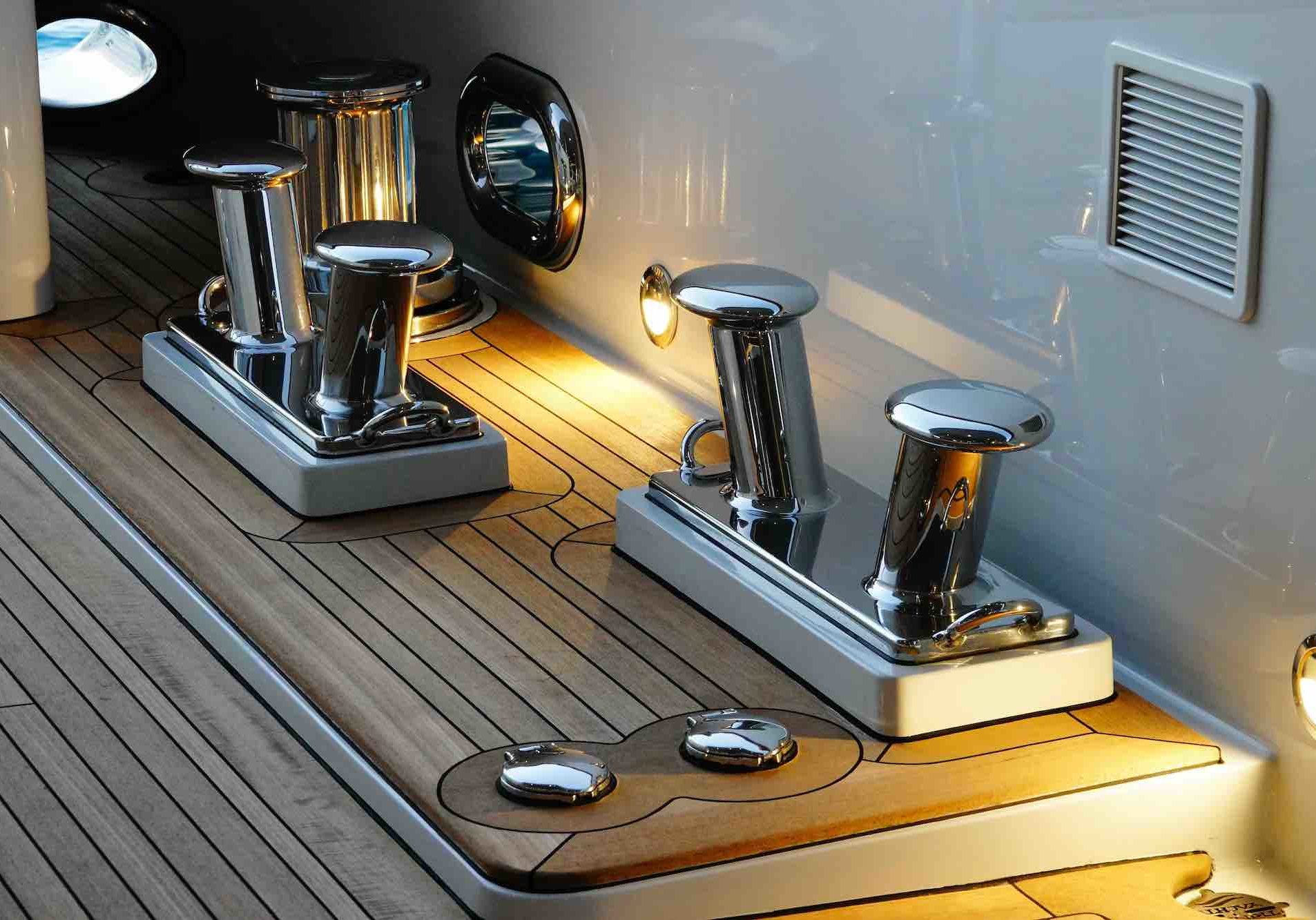
Guest areas to remain clean and presentable at all times appropriate!
This involves:
- Covering up furniture in the evenings and during spells of bad weather
- Cleaning tables, cushions as well as marks off of the teak (usually from food, drinks and sunscreen).
- Rinsing or washing areas once guests have gone to sleep
- Reopening furniture prior to guests waking up and ensuring that the teak, tables and stainless steel rails are dry with no hand or water marks. - Breakfast areas are often the priority as it is generally not acceptable to clean while guests have entered the area.
- Rinsing and washing the vessel after passages that spray the vessel with salt
- Tenders, swim platforms, towels, water sports equipment need to be presentable and ready to go at a moments notice.
Guests off (In season):
- Most yachts work Monday to Friday with weekends off, if the schedule allows .
- During this period, the yacht will be detailed and prepared for guest arrivals.
- In some cases where there is a significant period between guest trips, some larger jobs can be addressed; such as varnishing, minor paint jobs and repairs.
- In the case of charter boats or busy private yachts, the turnaround period between guests can be as little as 1-2 days. In this case, your duties will be washing the boat down while helping the interior crew get provisions and supplies onboard.
- When guests are not on board, the crew have a rotating watch system in place. This will require you to remain on the vessel for the assigned period to ensure the safety of the yacht. This may result in you being left on watch during your day off.

Off-Season:
- Most yachts work Monday to Friday with weekends off, if the schedule allows.
- Some crew will be granted leave or vacation during this period.
- The yacht will be tied up at the dock or taken out of the water and all furniture, toys and equipment will be covered and stowed.
- The yard period is an extremely important time for the vessel as it is often the only opportunity to do significant maintenance work. It is also a fun time for the crew as you will usually get evenings and weekends off to explore the location in which you are situated.
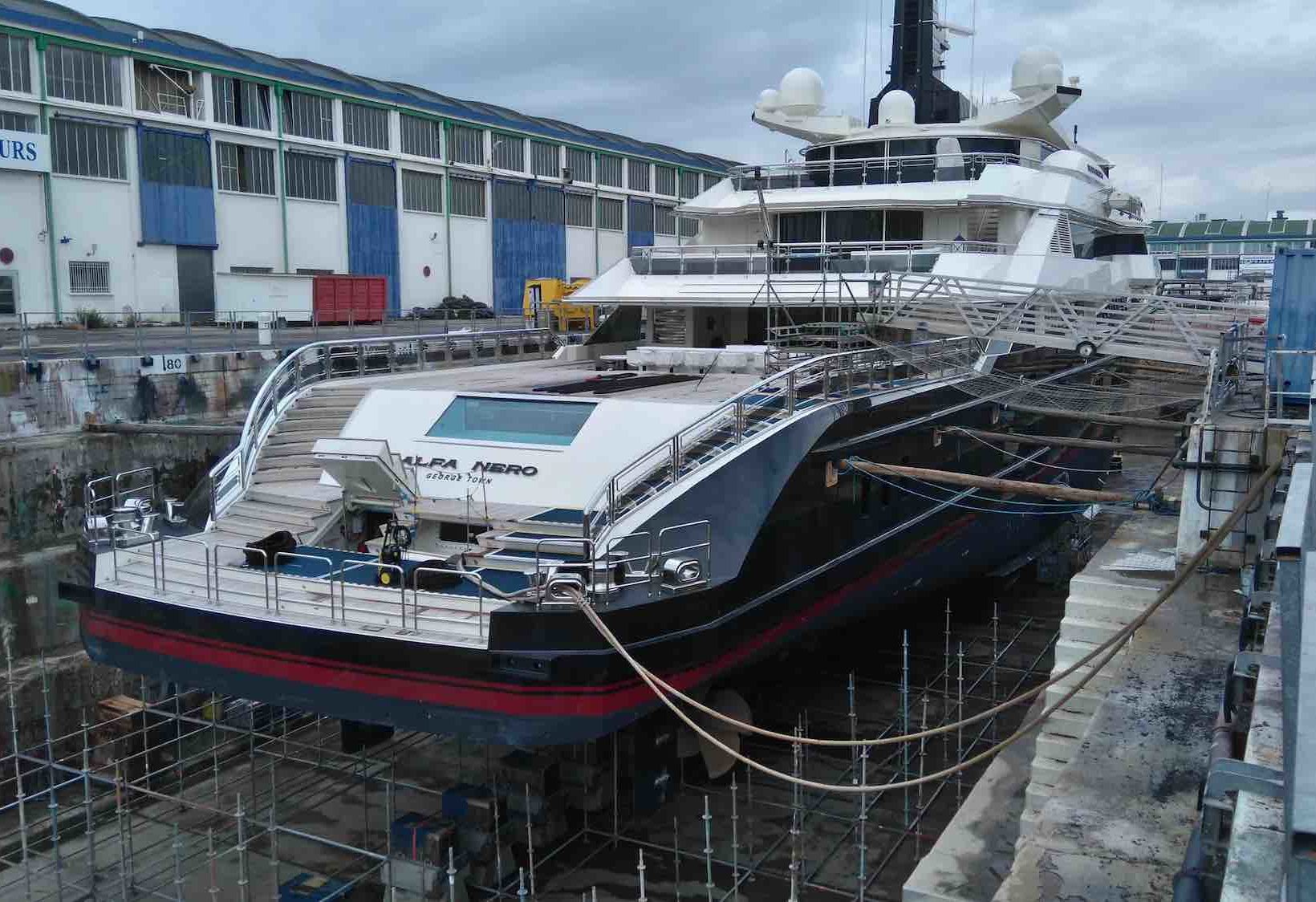
- Typical jobs for deck crew during this time may include sanding, painting, varnishing, rust removal, painting anchor chains, basic carpentry, doing inventories and cleaning out locker storages. It is also a great time for experienced crew to train and teach new crew useful skills and drills.

Crossing / Deliveries:
- Many superyachts do dual seasons and therefore spend long periods crossing to their next seasonal destination. The most common crossing is the Atlantic crossing between Europe and the Caribbean/USA which takes + - 2 weeks depending on the vessel and the conditions.
- It is extremely unlikely to have guests onboard and therefore it is usually only crew on board for these passages.
- The boat is stowed for the worst possible seas and prepared for extremely rough conditions.
- Your role on these passages as a junior deckhand or deckhand will be that of a lookout, meaning you will be on the bridge with the watchkeeper assisting in lookout duties. It presents a great learning opportunity and allows you to start taking part in bridge and navigation activities under the supervision of an officer.
- Watch-keeping hours will vary depending on the size of the vessel but are a maximum of four-hour shifts.
- In addition to your watch-keeping duties, you may have a work-list of jobs to get through. Getting the vessel to the next destination safely is the main priority and most captains try to avoid overworking crew before a busy season ahead. Activities that have a potential injury risk associated with them will be avoided at all costs.

Work Intensity
The workload onboard varies depending on the yacht, season, itinerary and whether or not there are guests onboard. The busiest times are usually the end of yard periods, preparing for a season, boat shows, as well as during guest trips. During guest trips, 7-day weeks and 12 - 14 hour days can be expected.
Below is a very broad and generalised schedule to give you an idea of what to expect once you step onboard:
Deckhand Duties Familiarization Videos:
Find out about your duties in order to give you a head start before joining a vessel as a deckhand.
How to Wash Down Correctly:
When and How to Rinse
Username or Email Address *
Remember me Lost your password?
Username or Email
Get New Password

- Career Advice
- Salary Guide
- Dockwalk Presents
- Digital Dockwalk
How to Get a Job as a Deckhand

Kate got her start in the yachting industry working as crew. She spent five years cruising the Bahamas, Caribbean, New England, and Central America, then segued that experience into a career in marine journalism, including stints as editor of Dockwalk and ShowBoats International .
A junior deckhand position is the first step in building a career that can lead to superyacht captain if you’re so inclined. Here is everything you need to know to get a foot on deck...
When you’re looking to break into the tight-knit superyacht industry with a job on deck, come prepared to work hard, take direction, and have a positive outlook.
The best candidates are keen and eager, says Marcy Laturno, executive crew placement director at Luxury Yacht Group in Fort Lauderdale. “All too often now we find entry-level crew come with their own list of demands: where the boat is going, how much time off they will get, what they expect to be paid as a minimum...”
Instead, approach your first superyacht deckhand position willing to learn and grow, and concentrate on completing a season or two on a yacht regardless of its program — private or charter, globe-trotting or more sedentary — and you’ll be on your way to your pick of positions.
What is a Deckhand?
A deckhand is responsible for cleaning and maintaining the exterior of the vessel. Led by the bosun, the deck team also assists in docking operations, launches and stows the tenders and toys , drives the tender, supervises guests’ watersports activities, and pitches in to help the interior crew after their duties are finished for the night.
Will Hollingshead, a first officer who has been hiring deckhands since his days as bosun and lead deckhand, says it’s important to have the ability to keep yourself motivated and working hard. “If I walk on deck and catch a dayworker or deckhand sneaking their phone back into their pocket or leaning back then I’ll let it slide, but if it’s multiple times a day then I’ll lose trust in that person.”
What Does a Deckhand do?
“Be prepared to clean, polish, clean, and polish some more,” says Erica Lay, director of placement agency El Crew Co in Palma de Mallorca.
How close it is to the start of a season will determine the type of work that needs to be done, says Hollingshead. “Mid winter in the Med, then you’re looking at opening up bigger projects; closer to the start of the summer it will be more teak scrubbing, stainless polishing and beautifying the yacht.”
When guests are not on board, “you will be doing the dirty work, especially if you’re junior,” says Madison Bailes, who has worked on deck of yachts spanning 116 to 350 feet. “You’re going to be cleaning the things that can’t be cleaned when the boss is on board: soaking/scrubbing cushion covers, ‘Flitz’-ing stainless, maybe detailing the engine room, paintwork, or if you’re really lucky, hanging out in a bilge,” she says with a smile. She describes this time as “chill” though — a regular eight-hour workday with a lunch break and maybe even a dock beer at the end of the day.
- Top 10 Deck Hacks for Crew
When the owner or charter guests are on board, it is a much longer and higher-pressure day. “The usual is a 13-hour workday, a three-hour break at one point and a longer eight-hour break for your main rest, though this differs from yacht to yacht,” Hollingshead says.
There is no such thing as a typical day with the boss on, Bailes says. “You could literally be in the water all day launching Jet Skis, tenders, paddleboards, doing fly-boarding and snorkeling, or you could be stood at the top of a gangway for hours watching the boss’s McLarens. I’ve done both and it all differs depending on your boat and your program.”
There will be a wider range of duties on smaller boats with fewer deckhands. On the largest superyachts, those in the junior positions may find themselves discreetly cleaning all day, while staying out of the guests’ way.
Who Does a Deckhand Report to?
On smaller yachts, a deckhand would report to the mate or directly to the captain. On larger vessels the bosun or lead deckhand is in charge of the deck team.
“The best people to work for are the ones who have the time and inclination to reach and train their junior deck crew, helping them learn how to paint, varnish, repair the yacht, etc.,” says Hollingshead.
What Qualifications do I Need to Become a Deckhand?
The prerequisites for any crew position are STCW Basic Safety Training and an ENG1 medical certificate. In addition, there are several qualifications that entry-level deckhand candidates can consider.
First of all, an RYA Powerboat Level 2 (PBL2) is what Lay calls “imperative” for working in the Med as it allows a crewmember to drive a tender in countries that require a certificate to operate small craft under 10 meters — which is most of Europe. International Yacht Training also has a course that satisfies this requirement called IYT Small Powerboat and RIB Master, which is MCA recognized.
Large motor yachts may require an MCA STCW95 certificate in Proficiency in Designated Security Duties, or PDSD for short. The one-day course is necessary for anyone with security duties on ISPS-compliant yachts, which are greater than 500 gross tons (roughly 55 meters and up).
- Everything You Need to Know About STCW Training
“Those (qualifications) are for starting out. Once a deckhand has a season or two or more under their belt and knows this is a career for them, I’d recommend they do Yachtmaster Offshore and consider looking into their EDH (MCA Efficient Deckhand), which must be held 18 months before going for OOW (Officer of the Watch),” says Lay.
In addition, Hollingshead adds, “Having a PWC license or even a PWC Instructor license is always a good short course to set yourself apart from the rest.” The RYA PWC license is a one-day course. It’s a prerequisite for the Instructor course, as is two years’ experience riding personal watercraft, which allows the crewmember to run the “RYA Introduction to PW Safety course” for guests on superyachts.
What Experience do I Need?
“Most jobs for junior crew I receive usually start with ‘must have at least a season’s experience,’ which is frustrating for the new crew to hear but sometimes we can get around that by demonstrating how transferrable their skills are from other industries or recreational activities,” Lay says.
Laturno also uses the term “transferrable” and gives some examples: “recreational boating backgrounds, skilled labor backgrounds, watersports experience, tender driving skills, to name a few.”
One way to break into crew work is by getting real-world experience in the maritime world, adds Hollingshead. “Go and get a job in a marina, work for a boat-building company, learn about teak, painting, epoxy, etc.
- 10 Tips for Newbie Deckhands
“There are two main work/life experiences that I value in a candidate,” he continues. “The first is any construction or building site experience. I grew up working on building sites with my dad and it teaches you about hard work, fixing things with the tools you have on hand, and also that most problems are solvable with a bit of forethought and working as a team. The second is anyone who has worked as a watersports instructor. I spent seven years as a windsurf/sailing instructor in Greece and Turkey before getting a job as a deckhand. When you’re hiring someone with that experience, you know they can drive a tender and that they’re comfortable on and in the water with your guests and their children.”
Bailes, who started her maritime career as a dive instructor, adds that any trade where you have acquired people skills correlates well in yachting, as does work involving cleaning, mechanics, and outdoor activities.
- How Dayworking Can Help Yacht Crew Break Into the Industry
How Much Does a Deckhand Earn?
“Starting pay for a junior deckhand in the Med is €2,500 (per month), with possibly more for skilled newbies, i.e. watersports instructors, so €3,000,” says Lay. Laturno at Luxury Yacht Group sees monthly salaries averaging $2,750 to $3,000 with the same amounts in euros.
For the ultimate answer, we turn to the Dockwalk Salary Guide , for which a dozen crew agencies around the world shared the salaries of the deckhands they placed. The numbers increase as the boat size does, and the range given for each size vessel spans various experience levels, so those just entering the industry should pay attention to the lower number. These start at $2,500 per month for boats under 80 feet, go up to $4,500 for yachts under 200 feet, and finally, $4,500 for yachts 200 feet and up.
While this may not sound like big bucks, keep in mind that a crewmember’s living expenses are close to zero so nearly all of your salary can be saved. In addition, charter yachts can offer some pretty lucrative tips on top of salaries.
P.S. A Side Note for Women
Yacht deckhand jobs have historically been dominated by men, but today more women than ever are starting their yachting careers on deck rather than inside, and gender should never be an obstacle.
Bailes, who joined the industry with a Yachtmaster license from her days on dive boats, still encountered yachts that wanted to make her a stewardess. “They see long hair and a pretty face and, boom, they want you in a skort cleaning cabins.
“While being a stew is an excellent career, if you want to be on deck, stand your ground and turn the job down if you have to,” she advises. “Do your Powerboat Level 2, not silver service, go for as many courses as you can and daywork as much as possible to gain experience. I know for a fact that I beat most guys to a job because my resume is stacked!”
More Career Guides:
- How to Get a Job as a Superyacht Captain
- Everything You Need to Become a Yacht Stewardess
- How to Land a Job as a Yacht Chef
- The Dos (and Don’ts) of Your First Crew Interview
More from Dockwalk
Most popular on dockwalk.
Yacht Crew Salaries
Average starting salary guidelines.
The crew salaries reflected below have been derived from placement records and job orders for both power and sail, reflected as an average, received by Crewfinders within the past year and may change without notice.
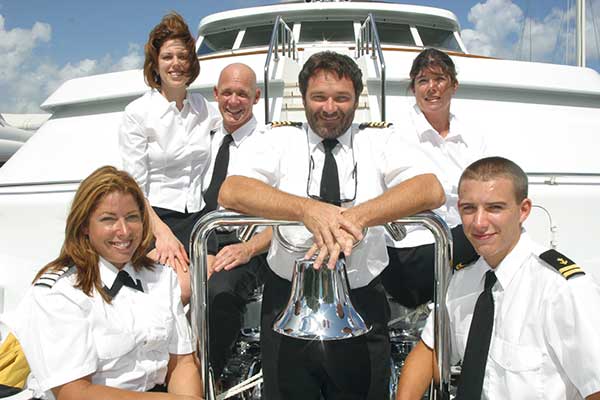

IMAGES
COMMENTS
Extensive fishing knowledge. Tender driving license. Carpentry skills. No tender driving certification. Yacht Deckhands have 0-3 years experience and are responsible for the Cleanliness of the yacht-wash downs, stainless polishing, waxing. They earn $30K - 38K based on yacht size & experience.
Lead Deckhand. Lead Deckhands earn roughly around $3,500 to $4,000+ per month. What's nice about the deckhand job is that you get to work closely with the guests on the boat. That means you might be rubbing elbows with celebrities, politicians, and other prominent public figures.
How Much Do Junior Deckhands Earn? Salaries for deckhands can vary widely based on the yacht's size, the vessel's itinerary, and the deckhand's experience. Junior Deckhands: Starting Salary: Junior deckhands, who are just beginning their careers in the yachting industry, can expect to earn between $2,500 and $3,500 USD per month. These ...
Typically, the entry-level salary for a Deckhand and Steward/ess ranges between €2,000 and €3,500, rising to €4,000+ for more senior roles. A Captain can make €10,000+ per month, depending on the size of the Superyacht! Moreover, as you'll be living onboard the yacht, there are no living expenses to worry about.
Yacht Deckhand Salary. Years of experience needed: 0; Minimum level of qualification: None needed, however Power Boat Level 2 and Yacht Master offshore will put you at a great advantage; Entry-level yacht crew salaries start at $3000 and can go as high as $4000/$4500. Responsibilities of a Deckhand. A Deckhand is an entry-level role on a yacht.
Specifically, the salaries were 7,000 to 8,000 euros ($7,600 to $8,700) vs. 3,500 to 4,000 euros ($3,800 to $4,400). Since on-deck positions range from captains to entry-level deckhands, yacht crew salaries here span a wide range. Notably, captains for 328-foot-plus (100-meter-plus) megayachts can get bonuses on top of an average 18,000 euros ...
How much can a motor yacht stewardess or deckhand earn? The standard entry level salary for a junior stewardess or deckhand ranges between €2000-€2500 or $2300-$2800 per month. This amount is generally tax free, although the onus is on each crew member to check with their home county about tax obligations.
All yachts $3,250 - $9,500 Entry level - 10+ years' experience / The ETO is a vital part of the AV/IT experience onboard a yacht. This specialty position could be held by a deckhand onboard with minimal experience, up to a highly qualified engineer who understands coding and has many years of experience onboard.
The work is extremely varied and an assortment of skills are necessary to be successful. This department is responsible for the following aspects of the yacht operation: The development path for an individual wishing to pursue a career on deck is very specific and requires achieving certain milestones. As an entry-level deckhand, focus should ...
Follow the steps to start working on a superyacht. 5. Find opportunities to learn additional skills! There are a lot of experienced crew members to learn from and there is a lot of information on the internet to study (in addition to the courses that you study). Take advantage of every opportunity possible.
A Deckhand's salary ranges between €2,000 to €3,500 a month, though the average is €2,500. Almost all Superyachts pay is in Euros. The salary can depend on many factors, the main one being the yacht's "crew" budget. The owner or management company will agree on a budget that the captain uses to hire crew.
The Second and Third Engineers report directly to the Chief Engineer. They assist in maintaining all mechanical and electrical operations of the yacht. 2nd Engineer. €3,000 - €10,000. 3rd Engineer. €2,500 - €6,500. Sole Engineer. €3,500 - €12,000. Motorman.
A Yacht Deckhand is an entry-level position for those looking to work as a part of the Deck crew team onboard a yacht. Deckhands are an integral part of the yacht crew in the day-to-day running of the yacht. They are responsible for the daily maintenance of the yacht, involving hands-on tasks to ensure it remains in immaculate condition for all ...
Deckhand salaries can vary slightly, depending on the size and type of yacht. Data shows that deckhands on a motor yacht earn between €2,000 and €3,000 a month, depending on the size and their experience. Deckhands working on sailing yachts may earn a bit less, between €1,800 and €2,900 a month.
Chief Officer (Deck) up to 10 000 USD/month with 7-10 years yacht industry experience. Captain (Deck ) Up to 25 000 USD /month on the largest Yachts with +10 years yacht industry experience. Chief Engineer (Engine) Up to 15000-20000 USD/ Month on the largest Superyachts owned by billionaires such Steve Jobs yacht Venus and Larry Ellison.
13. Continued learning of yacht maintenance, operations and systems; line handling, tender driving, navigation, safety, water sports. How much do I get paid to work on a Superyacht. Yacht salaries start from €2,000 a month for Deckhands and Stewardesses, rising to €4,000+ for more senior roles on luxury motor yachts.
As an experienced Stewardess or Deckhand, you can expect to earn a salary of €2,800-€3,000 (£2310.32-£2475.34 at the time of writing), plus tips. This will also scale up and down depending on the size of the yacht; for example, an experienced Stewardess or Deckhand will earn €3,500 to €4,500+ (£2887.90-£3713.02) on a 60m-80m Superyacht.
In fact, superyacht salaries for head chefs range from €3,500 to €10,000 per month ($4,350 to $12,400), not always related to the yacht's LOA. Stews and stewardesses. Monthly chief stew salaries range from €3,000 ($3,700) on yachts closer to the 80-foot mark on up to €9,000 ($11,200) for the largest yachts afloat. Deckhands.
Superyachts operate on a hierarchical system and the deck department is no different. Depending on the size of the yacht, the deck team can be made up of a captain, officers, a bosun, senior/lead deckhands, standard deckhands as well as junior deckhands. This page focuses on the role of a superyacht deckhand and/or junior deckhand.
How Much Does a Deckhand Earn? "Starting pay for a junior deckhand in the Med is €2,500 (per month), with possibly more for skilled newbies, i.e. watersports instructors, so €3,000," says Lay. Laturno at Luxury Yacht Group sees monthly salaries averaging $2,750 to $3,000 with the same amounts in euros.
Typically, a deckhand's responsibilities include exterior maintenance such as painting, varnishing, and cleaning, as well as helping with the yacht's operations, like mooring, anchoring, and tender driving. One of the unique aspects of this role is the combination of manual labor, skilled work, and hospitality service required.
How much does a Yacht Deckhand make? As of Jul 22, 2024, the average hourly pay for a Yacht Deckhand in the United States is $21.58 an hour. While ZipRecruiter is seeing hourly wages as high as $30.05 and as low as $12.74, the majority of Yacht Deckhand wages currently range between $18.03 (25th percentile) to $24.76 (75th percentile) across the United States.
Yacht Crew Salaries. The crew salaries reflected below have been derived from placement records and job orders for both power and sail, reflected as an average, received by Crewfinders within the past year and may change without notice. ... Deckhand $42 - $48,000: $48 - $54,000: $54 - $60,000: $60 - $66,000: $60,000+ Chief Engineer $72- $84,000 ...